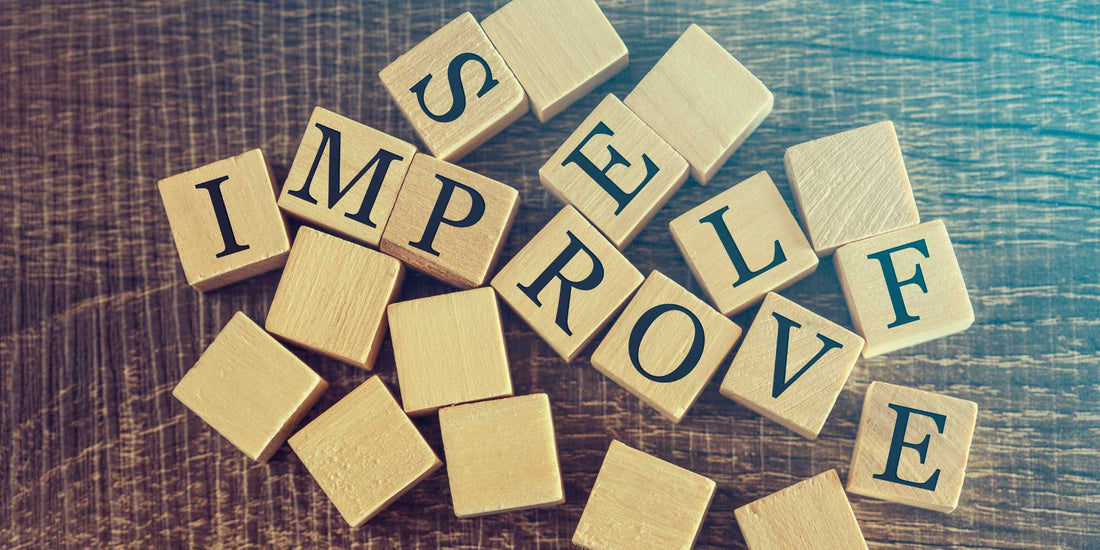
Blog Self Improvement: Unlock Your Potential
In our ever-evolving world, the quest for self improvement has become akin to a modern-day odyssey. Everyone seems to be on the lookout for the magic formula that will catapult them into realms of enhanced productivity, happiness, and overall personal growth. But here's the kicker: the path to self improvement isn't one-size-fits-all. It's a personalized journey that requires introspection, determination, and a sprinkle of grit. So, how do you embark on this transformative voyage? Let's dive in.
What is Self Improvement?
Self improvement, at its core, is the intentional and continuous process of enhancing one's life across various dimensions, including personal, professional, emotional, and physical aspects. Importantly, it involves the pursuit of personal growth and development by identifying areas of one's life that need improvement and actively working towards bettering them. Furthermore, this concept is deeply rooted in the belief that individuals possess the inherent ability to overcome challenges, reach their potential, and lead fulfilling lives through conscious effort and self reflection.
Key Aspects of Self Improvement
Personal Development: This encompasses improving self awareness, developing talents, refining potential, building human capital, and facilitating employability. Personal development also involves enhancing the quality of life and contributing to the realization of dreams and aspirations.
Emotional Intelligence: An integral part of self improvement is developing a deep understanding of one's emotions, triggers, and responses. It includes managing emotions effectively, empathizing with others, and maintaining positive relationships.
Mental Health and Wellbeing: Focusing on mental health is crucial for self improvement. This involves practices that ensure mental stability and well-being, such as stress management, overcoming anxiety, and cultivating a positive mindset.
Physical Health: The pursuit of physical health through regular exercise, a balanced diet, and adequate rest is fundamental to self improvement. A healthy body supports a healthy mind, enabling individuals to pursue their goals more effectively.
Professional Growth: Self improvement also extends to one's professional life. This might involve acquiring new skills, pursuing further education, or seeking opportunities for career advancement.
Social Skills: Enhancing one's ability to communicate effectively, resolve conflicts, and build meaningful relationships is another critical dimension of self improvement.
Self Improvement Vs Self Development
The terms "self improvement" and "self development" are often used interchangeably in casual conversation; however, they carry subtle distinctions in their focus and approach toward personal growth. Indeed, understanding these nuances can help individuals tailor their personal growth strategies more effectively.
Self Improvement
Self improvement focuses on identifying specific areas of one's life that need enhancement and actively seeking ways to address these areas. Additionally, it often involves setting specific, measurable goals and working towards achieving them. The emphasis is on overcoming weaknesses, fixing problems, or addressing areas where one feels deficient or unsatisfied. Consequently, self improvement strategies might include learning new skills to advance in one's career, adopting healthier habits, or working on communication skills to improve relationships.
Self Development
Self development, on the other hand, takes a more holistic and intrinsic approach to personal growth. It encompasses a broader perspective of self actualization and the realization of one's full potential. Self development is not just about addressing weaknesses but also about exploring and nurturing one's strengths, passions, and interests. It involves a deeper exploration of one's values, beliefs, and purpose in life, aiming for a well-rounded and fulfilled life.
What Are The 5 Steps to Improve Yourself?
Embarking on a journey of self improvement can be both exhilarating and challenging. While there are many paths to personal betterment, focusing on a few fundamental steps can create a strong foundation for lasting growth. Here are the top four steps to consider when aiming to improve yourself:
1. Set Clear and Achievable Goals
Initiating your self improvement journey requires clarity about what you wish to achieve. Setting clear, specific, and achievable goals lays down a tangible path to follow. Employ the SMART framework to outline your goals, ensuring they are Specific, Measurable, Achievable, Relevant, and Time-bound. This approach not only gives direction but also motivates you to take the first steps toward personal growth.
2. Cultivate Self Awareness
A deep understanding of oneself is critical in the realm of self improvement. Cultivating self awareness involves introspecting about your strengths, weaknesses, emotions, and triggers. This can be achieved through practices such as journaling, mindfulness, and seeking feedback from trusted peers. Being self aware allows you to pinpoint areas for improvement and understand how you interact with the world around you.
3. Adopt a Growth Mindset
Embracing a growth mindset is about believing in your capacity to learn and grow through effort and persistence. This perspective encourages resilience, a passion for learning, and the ability to view challenges as opportunities. A growth mindset helps you to persevere in the face of setbacks and view failure as a necessary step towards mastery.
4. Implement a Plan and Take Action
With clear goals and a thorough understanding of yourself, the next step is to devise a plan and spring it into action. Break your goals into smaller, manageable tasks, and set a timeline for achieving them. It's essential to review your progress regularly and adjust your plan as needed. Action is the bridge between intentions and real-world achievements, making it critical to maintain momentum and adaptability.
5. Practice Self Compassion and Patience
The journey of self improvement is fraught with challenges and setbacks. Consequently, practicing self compassion and patience is vital in navigating this path. Understandably, growth takes time and setbacks are part of the learning process. Therefore, treat yourself with kindness and avoid being overly critical. Moreover, celebrate your progress, no matter how small, and remember that personal development is a continuous journey, not a destination.
How do I Improve Myself Everyday?
Improving yourself every day is about embracing small, consistent actions that lead to significant personal growth over time. Here’s how you can make daily self improvement a part of your life:
Set Daily Goals
Start each day with a clear intention by setting small, achievable goals. These could be as simple as reading for 30 minutes, practicing a new skill, or exercising. Furthermore, daily goals keep you focused and provide a sense of accomplishment, thereby motivating you to continue your self improvement journey.
Practice Mindfulness
Incorporate mindfulness into your daily routine to enhance self awareness and reduce stress. This can be through meditation, deep breathing exercises, or simply being fully present in the moment during everyday activities. Mindfulness helps you become more aware of your thoughts and feelings, leading to better decision-making and emotional regulation.
Learn Something New
Dedicate time each day to learning, whether it’s reading an article, watching a documentary, or taking an online course. Expanding your knowledge not only enriches your mind but also opens up new perspectives and opportunities for growth.
Reflect on Your Day
Spend a few minutes at the end of each day reflecting on what you did well and what you could improve. Additionally, consider keeping a journal to jot down your thoughts, feelings, successes, and lessons learned. Consequently, reflection is crucial for recognizing progress and understanding areas where you need to focus more attention.
Practice Gratitude
Make it a habit to acknowledge and appreciate the good in your life. You can do this by writing down three things you’re grateful for each day. Practicing gratitude shifts your focus from what you lack to what you have, fostering a positive mindset that is conducive to personal growth.
Self Improvement Vs Self Acceptance:
Self Improvement
Self improvement is the process of identifying areas in one’s life that could benefit from change and actively seeking ways to enhance those aspects. It involves setting goals, acquiring new skills, overcoming challenges, and making positive changes to achieve a desired outcome. Self improvement is driven by the belief that it’s possible to enhance one’s situation, capabilities, or well-being through dedicated effort. It focuses on growth, achievement, and the pursuit of excellence in various domains of life, such as career, personal skills, health, and relationships.
Self Acceptance
Self acceptance, on the other hand, is about acknowledging and embracing oneself as they are at this moment, without judgment. It involves recognizing one's strengths and weaknesses, successes and failures, and accepting them without criticism. Self acceptance is the foundation of a healthy self esteem and mental well-being. It's about understanding that while you may have areas to improve, you are inherently worthy, valuable, and deserving of love and respect just as you are. Self acceptance encourages a compassionate and non-judgmental relationship with oneself.
While they may seem contradictory at first—self improvement aiming to change and self acceptance focusing on embracing the current state—the two are deeply interconnected. In fact, true self improvement cannot happen without self acceptance. Here’s why:
- Motivation from a Place of Love: Self acceptance provides a stable foundation from which to pursue self improvement. When you accept yourself, your motivation for improvement comes from a place of love and desire for growth, rather than from inadequacy or self loathing.
- Realistic Goals and Expectations: With self acceptance, you gain a clearer understanding of your capabilities and limitations, allowing you to set realistic, achievable goals for self improvement.
- Resilience in the Face of Setbacks: Accepting yourself means recognizing that failure and setbacks are part of the learning and growth process. This perspective fosters resilience, enabling you to persevere in your self improvement efforts.
- Holistic Growth: Self acceptance encourages you to consider your well-being holistically, recognizing that true improvement includes emotional and mental growth, not just external achievements.
What is True Self Improvement?
True self improvement is a holistic and ongoing journey that focuses on authentic personal growth across all aspects of life. It emphasizes self awareness, continuous learning, overcoming challenges, and contributing positively to the lives of others. At its heart, true self improvement involves mindful, purpose-driven actions, coupled with self compassion and patience, recognizing that meaningful progress takes time and that the path is as significant as the destination.
In wrapping up our exploration of self improvement, it's clear that the journey towards self betterment isn't merely a destination or a state of perfection to be achieved; rather, it's a continuous process of growth, learning, and adaptation. By setting clear goals, cultivating self awareness, embracing a growth mindset, and taking intentional steps toward our aspirations, we embark on a transformative path. Moreover, as we strive to enhance ourselves, it's crucial to remember that every step forward, no matter how small, represents a victory in its own right.
Ready to revolutionize your comfort and style? Don't miss out on elevating your daily essentials. Make the sustainable choice and come back to explore our exclusive Men's Bamboo Underwear Collection. Experience unmatched softness, superior breathability, and eco-friendly luxury with every pair. Your ultimate comfort awaits—Shop Now .









